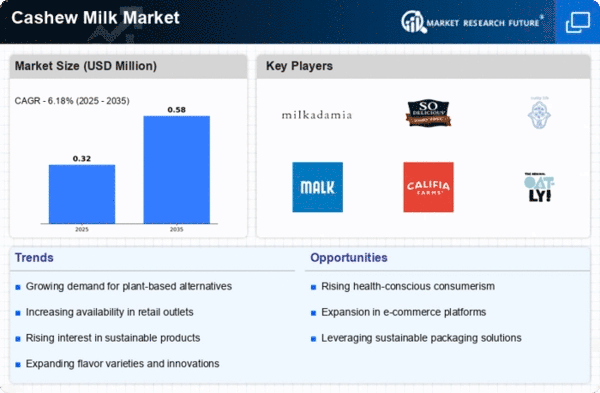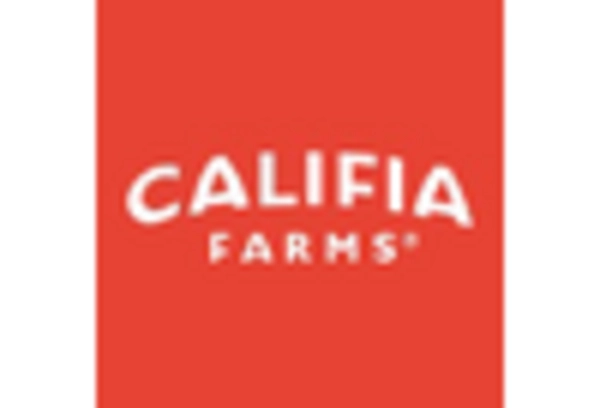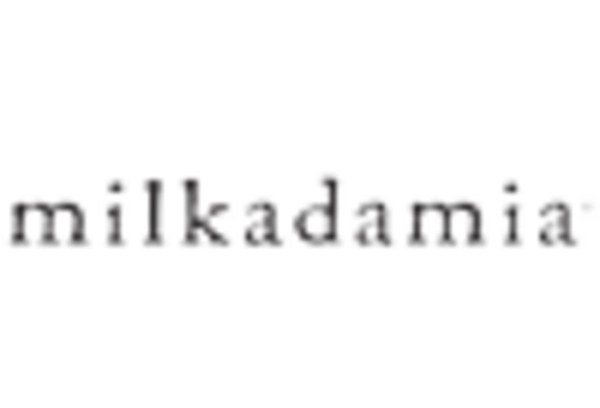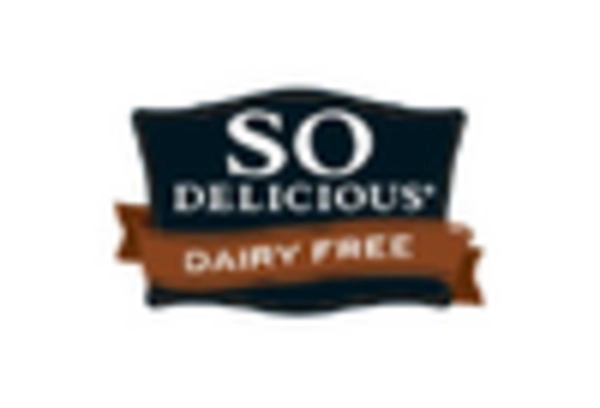Market Share
Cashew Milk Market Share Analysis
In the rapidly growing Cashew Milk Market, companies strategically deploy market share positioning strategies to navigate a landscape shaped by changing consumer preferences and a rising demand for plant-based alternatives. Cashew milk, known for its creamy texture and nutty flavor, prompts companies to adopt various strategies to meet the evolving needs of consumers seeking dairy alternatives that align with health, taste, and sustainability considerations.
One central strategy in the Cashew Milk Market is product innovation. Companies invest in research and development to create a diverse range of cashew milk products tailored to different consumer preferences. Variations in flavor profiles, thickness, and the inclusion of additional nutrients or flavors allow companies to capture a larger market share by offering a variety of choices that cater to diverse tastes and dietary requirements.
Pricing strategies play a pivotal role in market share positioning, given the competitiveness of the plant-based milk market. Some companies adopt a cost-effective pricing approach, positioning their cashew milk products competitively to appeal to a broad range of consumers. Others may opt for premium pricing, emphasizing factors such as the quality of cashews used, organic certifications, or unique formulations. The pricing strategy chosen shapes brand perception and influences the market share a company can secure within different segments of the market.
Marketing and branding efforts are crucial for creating awareness and establishing a distinct identity in the Cashew Milk Market. Companies invest in marketing campaigns that highlight the natural creaminess, nutty flavor, and health benefits of their cashew milk products. Collaborations with nutritionists, endorsements from plant-based influencers, and engaging social media content contribute to building brand credibility. The goal is to position cashew milk as a delicious and nutritious dairy alternative, influencing purchasing decisions and consolidating market share among consumers seeking plant-based options.
Distribution channels play a vital role in ensuring the widespread availability of cashew milk products. Companies strategically partner with supermarkets, specialty stores, and online platforms to reach a broad consumer base. The accessibility of these products through various channels contributes to market share positioning, as convenience is a significant factor influencing purchasing decisions for consumers seeking plant-based milk alternatives.
Adapting to the growing emphasis on sustainability, companies are increasingly incorporating considerations of responsible sourcing and eco-friendly practices into their market share positioning strategies in the Cashew Milk Market. Brands that highlight ethical sourcing of cashews, environmentally friendly production processes, and sustainable packaging resonate with environmentally conscious consumers. By aligning with these values, companies position themselves as leaders in providing cashew milk options that meet the sustainability expectations of both environmentally conscious consumers and those seeking plant-based alternatives.



















Leave a Comment